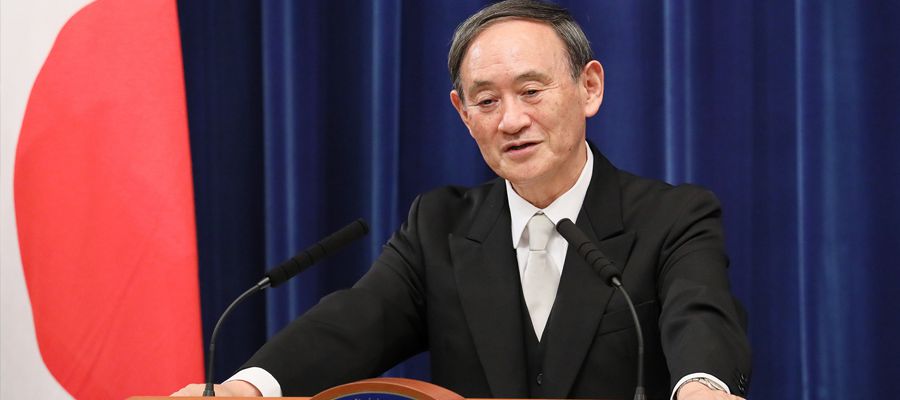Japan is well placed to offer investors both upside and dividend delivery.
- Friday, November 6, 2020
 New Japanese Prime Minister, Yoshihide Suga used his first policy speech in Parliament to present plans for Japan to become carbon neutral by 2050. Mr Suga succeeded Shinzo Abe in becoming Prime Minister after Mr Abe stood down in August due to his ongoing health concerns over ulcerative colitis which he has suffered from since childhood. Mr Suga government will continue with the Abe administration economic reforms.
New Japanese Prime Minister, Yoshihide Suga used his first policy speech in Parliament to present plans for Japan to become carbon neutral by 2050. Mr Suga succeeded Shinzo Abe in becoming Prime Minister after Mr Abe stood down in August due to his ongoing health concerns over ulcerative colitis which he has suffered from since childhood. Mr Suga government will continue with the Abe administration economic reforms.
Mr Suga announcement makes Japan the largest economy to commit to net zero emissions by 2050 since the UK and the EU made the same commitments in 2019. This announcement follows on from China making a similar pledge but not until 2060.
Japan has turned away from nuclear power after the 2011 Fukushima disaster and has since relied heavily on imported coal to fire its power stations. Mr Suga stated that Japan would fundamentally shift from coal and encourage new technologies such as large capacity energy storage, carbon recycling and advanced solar batteries. From an investment point of view, the clean energy sector has the opportunity to grow rapidly around the world.
Japan has learned from the limitations of its overly bureaucratic government administration during the Covid crisis. The state was not able to respond swiftly enough so is moving to digitise its public sector services adding the capacity for public servants to work remotely.
Over the past 5 years Japanese equities have fared well against other stock markets. The Nikkei 225 is up +20% over the past 60 months compared to the Eurostoxx 50 down -13%, the FTSE 100 down -12.2%, the Hang Seng up +6.4% and the S&P 500 up +59%. Despite these figures Japanese equities remain significantly underweighted by investors.
Japan is highly dependent upon international trade and manufacturing. It is Japan’s international activity that drives equity market movement so as global growth recover so should Japan’s fortunes. As far as Japanese listed companies are concerned, they are attractive as they are holding net cash as opposed to net debt positions, so can easily grow and maintain dividends.
As a consequence of former Prime Minister Abe reforms in Japanese corporate governance, a higher level of corporate reorganisation, merger and acquisition activity has occurred recently. This drive to improve governance is focused on repaying record cash balances out to investors.
Japan’s equities remain relatively undervalued despite the recent stock market rebound. As the global economy recovers and trade volumes increase, Japan is well placed to offer investors both an upside and dividend delivery while avoiding the higher valuations found in the US market.

Chris Davies
Chartered Financial AdviserChris is a Chartered Independent Financial Adviser and leads the investment team.
About Estate Capital
Financial Services
Our Contacts
7 Uplands Crescent,
Swansea, South Wales,
SA2 0PA.
Tel: 01792 477763
